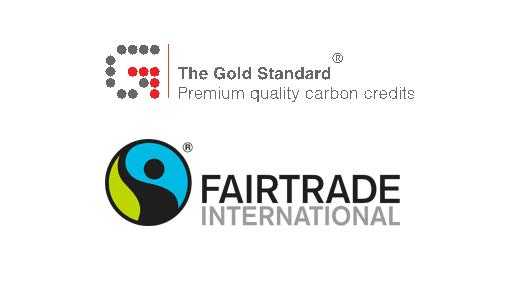PARIS, France – Some of Europe’s biggest businesses are among the first companies to commit to buying the innovative Fairtrade Carbon Credits, which were launched during the UN climate change talks in Paris. Logistics company Deutsche Post DHL Group and international retailer Marks & Spencer are among a raft of businesses to partner with Fairtrade in a new initiative to support farmers and vulnerable rural communities in their fight against climate change.
Others who have committed to join the scheme include a renewable energy supplier and two leading coffee roasters.
Fairtrade Carbon Credits, which are regulated through the Fairtrade Climate Standard, have been developed in partnership with the Gold Standard, an internationally recognized organization with expertise in climate security and sustainable development. They enable vulnerable communities in developing countries to reduce emissions while also strengthening themselves against the effects of climate change.
A minimum price ensures costs are covered, and producers receive a Fairtrade Premium for each credit sold, money which they can then invest in adapting to the effects of climate change on their farms and communities. For businesses, Fairtrade Carbon Credits can help them take responsibility for any unavoidable emissions once they’ve done everything to minimise their carbon footprint.
“Increasingly, consumers and shareholders are demanding that businesses reduce their carbon footprint and compensate for unavoidable emissions.” said Fairtrade International CEO Martin Hill.
“At the same time, small-scale farmers and workers are among the most affected by climate change even though they have contributed the least to causing it. Extreme weather conditions, increasing plant diseases such as coffee rust, and lower yields are just some of the problems they face.”
“The fact that major international companies like Deutsche Post DHL Group and Marks & Spencer have committed right from the outset shows there’s a real demand for Fairtrade Carbon Credits,” said Hill.
“This new scheme gives business added assurance that their investment in climate security directly supports those who need it most, while also contributing additional sustainable development impacts—from improved health to increased local income—that can be transformational for vulnerable communities,” said Marion Verles, CEO of Gold Standard.
“The Fairtrade Climate Standard enables cooperatives like ours to combat the effects of climate change,” said Dessalegn Jena, General Manager of Oromia Coffee Farmers’ Union, which is one of the first cooperatives to pilot the Fairtrade Climate Standard, with the support of FairClimateFund.
“If climate change continues at the rate it is currently going, we will struggle to grow coffee in Ethiopia. By selling Fairtrade Carbon Credits, farmers will be able to build their resilience.”
Deutsche Post DHL Group will apply the new Fairtrade Climate Standard to its own project in Lesotho. With its partner atmosfair, the logistics company distributed efficient cooking stoves to local communities, reducing emissions and improving health and quality of life.
“Driving climate protection has been top of our agenda for years: Already a decade ago we developed a climate neutral service including social benefits. Hence it was very clear for us that we would commit to Fairtrade certification, too.
The new Fairtrade Climate Standard emphasizes that it does matter what you buy and will make it easier for our customers and ourselves to contribute to a better planet,” said Katharina Tomoff, responsible for the GoGreen program of Deutsche Post DHL Group.
Marks & Spencer is committing to purchase Fairtrade Carbon Credits that will fund new clean, efficient cook stoves for M&S coffee producers in Ethiopia. Carmel McQuaid, Head of Sustainable Business at Marks & Spencer said: “This is a scheme that will deliver real benefits to businesses and communities.
It will make a difference to M&S, helping us maintain our carbon neutral commitment, a difference to our suppliers as all the credits will be spent with M&S suppliers in Ethiopia and it will make a difference in communities by providing a safer, cleaner and healthier way to cook.
That’s why we’re investing in Fairtrade Carbon Credits and we’re proud to be one of Fairtrade’s first partners.”
Among other early adopters of the Fairtrade Carbon Credits are Dutch renewable energy company Eneco, who aims to offer climate neutral products to its customers; Belgian coffee roasters Beyers, who are going to make their Fairtrade certified coffee climate neutral, and the Java Coffee Company who have committed to Fairtrade climate neutral coffee for the European institutions in 2016; and German honey producers Breitsamer who have committed to buying credits in 2016 to compensate for their 2015 CO² emissions.


















